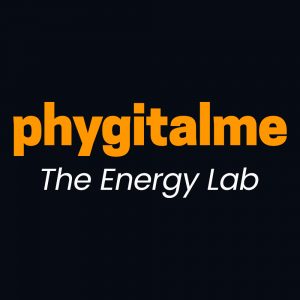Breath is life.
Optimizing breath = optimizing life
Progressive Deep Breathing is a great way to do that.
Every day we pay attention to all sorts of things. But we rarely pay attention to how we breathe.
Conscious breathing puts a spotlight on your breathing patterns.
We all want to live a high-quality life and perform at an optimal level – in business and life.
Don’t we?
How you breathe has the potential to transform everything you thought you knew about your body, your health, and your performance.
Improve your breathing – improve your sleep
Getting those 7-8 hours of sleep is essential for fitness, health, and daily performance.
And there’s more to that.
It’s not only the quantity of sleep. It’s also the quality of sleep.
We usually have a wave-like sleep rhythm.
It’s the timing of wakefulness, arousal, and an approx 90-minute changeover that occurs between REM (light, dreamy) and non-REM (deep, quiet) sleep.
Both phases are important for our body & mind.
Quiet sleep is important because it helps restore the body, while REM sleep restores the mind and is important for both learning and memory.
Physical rest, repair, and recovery happen during non-REM deep sleep phases.
But Markus, what has breath to do with sleep?
Breathing is essential for survival, right?
If you don’t breathe right you’re more likely to have a lighter and thus less restful sleep.
Sleep apnea is a drastic example that leads to sleep deprivation.
But we don’t need to go that far.
Calm your breath – Calm your mind
There’s plenty of scientific evidence that breath is liked to mental activity.
Probably you have noticed that when trying to sleep if your mind is still active, you have a hard time falling asleep.
An active mind translates to an active system [heartbeat, breathing, etc.]
The breath is the only part of the autonomic nervous system we can influence.
When you calm your breath, you calm your mind.
It’s that simple.
Maybe you have heard of the 4-7-8 method to fall asleep.
There’s an even better way that trains your capacity for calm breathing.
I call it Progressive Deep Breathing.
Simply 2x your exhale to your inhale.
Here’s a 30-day protocol for starters:
Day 01 – Day 05 ➙ [5 sec IN | 10 sec OUT]
Day 06 – Day 10 ➙ [6 sec IN | 12 sec OUT]
Day 11 – Day 15 ➙ [7 sec IN | 14 sec OUT]
Day 16 – Day 20 ➙ [8 sec IN | 16 sec OUT]
Day 21 – Day 25 ➙ [9 sec IN | 18 sec OUT]
Day 26 – Day 30 ➙ [5 sec IN | 10 sec OUT]
For falling asleep faster this is the last thing you do when in bed.
Do it for 5 min. (or until you fall asleep).
Concentrate only on your breath.
Watch it. Explore it.

If you feel high pressure and stressed out – this technique will also calm you down during the day.
Try it out.
Deep breathing is a great tool to calm your nervous system which leads to better sleep.
However, it also requires focus which can be counterproductive to falling asleep easily.
For this, add the following “unfocusing exercise” at the end.
And it goes like this:
Imagine watching yourself from above.
Feel the space of the room you are in.
Watch yourself from a corner of that room.
Zoom further out and watch yourself from above your house, apartment, etc.
Zoom out into space and watch yourself from the moon.
Zoom further and further away into space.
Training progressive deep breathing will help you breathe better.
When you improve your breathing your sleep will improve.
Calming your breath calms your nervous system.
You will be more likely to have longer phases of deep sleep.
“The Extra Byte”
Breathing well means breathing more slowly and deeply. Relax, feel your breathing, and breathe comfortably. Once aware, it naturally becomes deeper and slower.
Ilchi Lee Tweet
“By changing patterns of breathing we can change our emotional states, how we think, and how we interact with the world.”
Dr. Patricia Gerbarg, Harvard-trained psychiatrist Tweet









